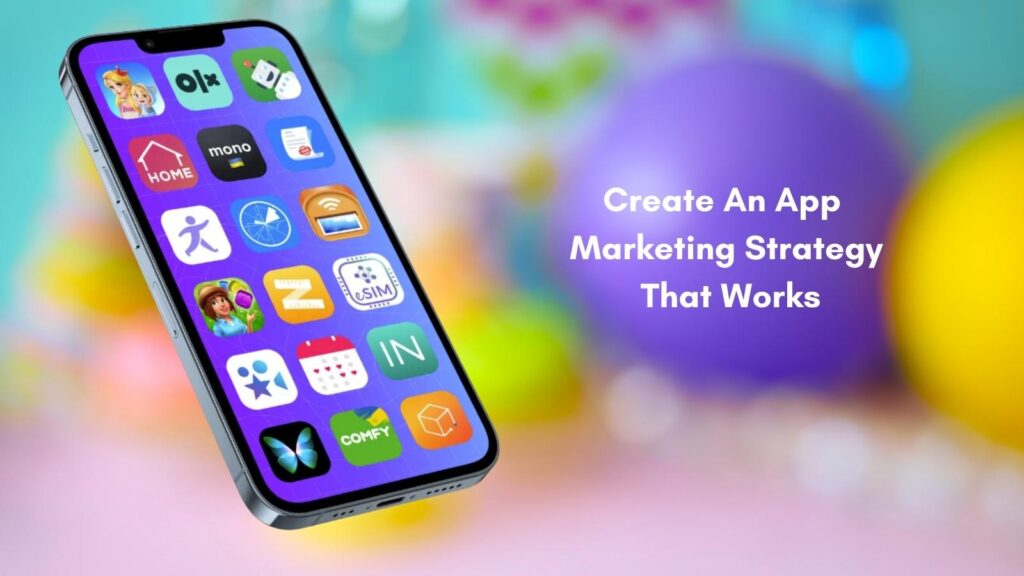It is not enough merely to develop an attractive and convenient application. You should also take care of creating an effective mobile app marketing strategy. Otherwise, fewer people will know about your helpful product than you would like.
An app promotion is a multi-stage process. It requires preliminary preparation. You can contact an App Marketing Agency, where specialists will create a suitable marketing strategy. Choose the performers carefully and ensure they are reliable and experienced.
Estimated reading time: 6 minutes
Table of Contents
Why App Marketing Strategies Are Important
An app marketing strategy is your roadmap. It describes ways to promote your product, methods of communication with users, and unique elements that set your app apart from similar products.
A good strategy ensures the app’s visibility, user acquisition, and overall success in a high-competition market. This means that your application:
- reaches its target audience;
- effectively communicates its value proposition;
- drives user engagement and retention;
- lowers user acquisition costs and increases ROI;
- adapts to market trends and user feedback.
That’s why it is so important to hire professional specialists. They can create a clear and effective promotion plan.

Steps For Creating an App Marketing Strategy
Want to develop the right marketing strategy but don’t know where to start? Follow this plan:
Define Target Audience
So, you wanna define your target market for an app marketing strategy? Start by knowing exactly who your app benefits. Who are they? What do they need? What problems does your app solve for them?
Break it down by age, location, interests, and habits. Are they tech-savvy or looking for simplicity? Next, scope out the competition. Who are they targeting?
Begin with defining your target audience and unique selling proposition (USP). Think about what your potential customers look like. What is their gender, age, location, needs, interests, etc. Next, identify the unique features of your product.
Check out reviews or feedback on similar apps to see what users love or hate. Use social media to see where your potential users hang out.
Finally, create user personas. These personas are fictional characters that represent your ideal customers. They help everyone on your team focus and create marketing messaging that resonates.
Market Research
To craft a spot-on market research plan for your mobile app marketing strategy, start by identifying your target audience. Who’s gonna use your app? Dive into their habits, preferences, and pain points.
Check what your competitors are doing. What features do their users love or hate? Read app reviews to get real user opinions.
Use surveys or interviews to understand your audience better. Analyze app store trends to spot what’s getting download traction. Don’t forget to check social media platforms for discussions related to your app genre.
Conduct market research and competitor analysis. Pay attention to market trends, user preferences, and your competitors.

Set KPIS for App Marketing Strategy
Set clear KPIs. These are specific metrics that will allow you to track the success of your advertising campaigns. Make sure they are measurable and achievable.
Using KPIs in your marketing strategy is like having a GPS for success. They show you what’s working and what’s not, saving you from the guesswork. By tracking key metrics, you can adjust your tactics quickly and stay ahead of competitors.
KPIs help link every marketing effort directly to your goals, so you use resources wisely. They’re also great for proving results when you’re explaining your mobile app marketing strategy to a boss or client.
Multi Pronged Marketing Plan
Create a multipronged marketing plan. It should include various channels and methods (e.g., social media platforms, optimized app store presence, content marketing, and paid advertising).
To boost your mobile app marketing, start by harnessing social media. Share engaging content, like how-to videos and user stories, to spark interest. Use eye-catching visuals and compelling copy to keep your followers hooked.
Next, optimize your app store presence. Your app’s title and description should include relevant keywords that clearly explain its benefits. A clean layout and strong icons are a must for catching attention at first glance.
For content marketing, craft blog posts, guides, or tutorials that show the app’s practical uses. This builds credibility and attracts organic traffic.
Finally, paid ads on platforms like Google and Facebook can expand your reach. Target specific demographics interested in your app’s features, experimenting with formats to see what converts best.
Always track metrics and tweak your strategy for maximum impact.
App Store Optimization for App Marketing Strategy
Implement app store optimization (ASO). This is an integral part of driving organic traffic.
First, nail your app’s title and keywords. These are what users search for, so you want to pick words that are relevant and frequently used.
Next, focus on your app’s visuals. Your icon needs to stand out, and your screenshots should highlight the best features.
Don’t forget to write a killer app description. Keep it clear and concise, showcasing the app’s main benefits and features.
Pay attention to user reviews and ratings too. They impact your rankings, so encourage satisfied users to leave a positive review.
Lastly, track your performance and tweak as needed based on data. Remember, ASO isn’t a one-and-done task. Keep testing and optimizing to stay ahead.
User Feedback
Analyze user feedback for constant improvements. Upgrade the user experience and adjust marketing efforts to reach your audience better.
Measure, analyze, and adapt for continuous success. Collect data to assess the effectiveness of your strategy and determine the need for any adjustments.
This guide will help promote mobile applications and achieve top positions in the rankings.
Conclusion: An App Marketing Strategy To Work For You
Creating an effective app marketing strategy involves a step-by-step approach. It includes defining your target audience, conducting marketing research, setting clear goals, developing a multifaceted plan, implementing ASO, using feedback, and constant analysis.
Only with such a multidimensional approach can you successfully promote mobile applications, increase their recognition, and build a loyal audience.
Developing an efficient strategy on your own can be challenging without specific knowledge and experience. It is often more effective to rely on experts to handle this task and boost your app’s visibility.
A mobile app agency offers mobile app optimization and marketing services that can help you achieve your desired results quickly for your mobile app.
- How To Stop Instagram Spam Comments Fast: Quick Fixes - February 12, 2026
- Facebook Page Posts in 2026– Who Sees Them Anymore? - February 12, 2026
- Fedica for LinkedIn: Schedule, Recycle, and Track Posts in One Place - February 11, 2026




